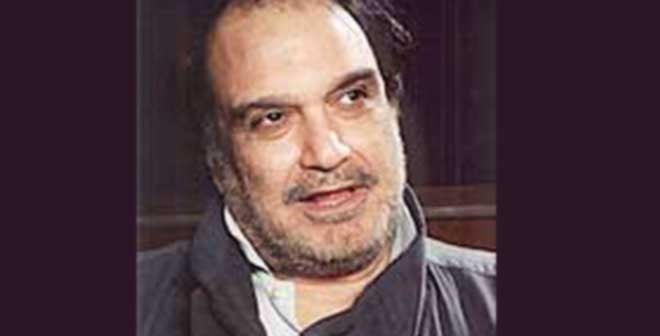

The News on Sunday: What is the impact of a language on a society and to what extent is it important to protect a language? What is its role in the development and formation of an identity?
Khaled Ahmed: Language, like race, region, tribe, religion, etc, is an identity marker or asabiya. It can keep the state together if other languages are allowed to flourish and one language is not made compulsory. Pakistan tried to make Urdu a compulsory identity marker but failed in East Pakistan. By calling it "national language" we have aroused a regional linguistic backlash. Our constitutional clause, saying Urdu will be enforced in all provinces, has not been acted upon. Neither has India managed to make Hindi the national idiom as per its Constitution. To be safe, let the job market decide. Knowing English and, more crucially, learning through English, has enabled India to become a global power. Colonial language residuals often get in the way of a usually suicidal single-identity nationalism and are often denounced. English, like colonial Persian and Arabic in the past, is a part of our identity too. Languages help in the creation of culture and civilisation. Ideas of language-based purification of the state are fascistic. There was a time when Arabic was the universal vector of knowledge; today as a single identity-marker in the Arab world it is a hindrance to democracy.
TNS: Language, in general, has become more casual. Is it because there is globally a shift to a more democratic way of life and the difference between the language of the elite and common people is shrinking? Or is it the language of the digital age?
KA: Many interesting things are happening today and they should not cause politicians and clergy to start quivering. Languages are becoming casual and, therefore, more enriched. Urdu lost a lot through our post-1947 nationalism by suffering removal of Hindi words from Urdu poetry, especially the genre of geet. Now, Urdu may lose its tough and impractical nastaleeq script through twitter because our youth is writing in Roman letters. Remember, elites don’t create language. The lower classes create it through what is called slang. Our great Urdu idiom was created by housewives of the lower classes, making Ismat Chughtai the best Urdu stylist.
TNS: You seem very particular about the purity of language and do not approve of the mixing of languages that we have become so prone to. Do you think we can prevent that with individual effort, what are the reasons for this and do we need some institutional support to retain the purity of language?
KA: This pertains to what the Greeks called rhetoric, that is, the art of speaking effectively. If you are in the business of public-relationing, like politicians and clerics, you must be aware that effective speech cannot be a mixture of languages. Urdu is already full of useful English words. Most of us don’t even know what the Urdu word is for Supreme Court -- the Urdu press doesn’t write the Urdu version all the time -- and it doesn’t hurt. We have discarded our own words for "parcel" and "bundle". But you can’t do it to Urdu words that express our emotions. Better shift to English which, strangely, you are reluctant to mix with Urdu.
TNS: Have you looked at the language of the media: print, electronic, and social? Is it a natural progression and evolution, considering that media is meant to communicate or did we just let go of the standards at some point?
KA: Media is constantly adding to people’s vocabulary but it doesn’t train its TV reporters, which is unfair. They are comic, to say the least. The "joh-hai" disease has spread; and it is not only Khwaja Asif who is incurably defective, most of us are. The TV channels are guilty of compounding this murderous development.
TNS: You have been also looking at fiction and poetry in Urdu. In poetry, poets like Zafar Iqbal have experimented a lot with language and Parveen Shakir and others have used words from English, too. Likewise, for fiction. What is the criterion for a literary language or what should be in your opinion?
KA: Zafar Iqbal is doing something fundamental, not so much with the words as the emotion, which then gives rise to a new expression. Parveen Shakir is a great poet in the traditional school and expands the canvas of feminine experience but Fehmida Riaz writes as a woman who doesn’t feel the kind of restrictive shame I would want my sister to feel. Language expands with such experiments. English is far advanced: our English-medium children say "shit" all the time but are not allowed to say it in Urdu.
TNS: What are your insights on the future of Urdu as opposed to English?
KA: Pakistan should not succumb to the crippling anti-intellectual political trend of a ‘single’ system of education. This is a satanic conspiracy to keep the lower classes deprived of the diversity of knowledge-acquisition. I understand the feeling: since the elites learn through English, deprive them of the advantage of English-medium education and foreign-induced syllabi. This will fail as it did in many countries. The principle should be: give to the lower classes what is available to the elites in knowledge-acquisition. And it is possible. Education as revenge is an evil enterprise. So far, we have only hurt ourselves instead of hurting India.